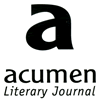R. S. Thomas (1913 – 2000)
Encounters with his Work
Believe it or not I first encountered the work of R. S. Thomas at school. His work was included in an experimental curriculum, trying to induce an interest in literature rather than rote learning. We were assigned about 10 poems, mostly his early work. One was ‘Soil’. This opens with the scene of moon, man and mangolds –
A field with tall hedges and a young
Moon in the branches and one star
Declining westward set the scene
Where he works slowly astride the rows
Of red mangolds and green swedes
Plying mechanically his cold blade.
Thomas then goes on to explore the relationships between things of this earth – farmer, sky and soil.
Some of the recent obituaries about R. S. Thomas described his poems as offering ‘no comfort’. Many of his poems do present a bleak eroded Welsh landscape. But this bleakness is the true reflection of the impoverished rural lives that Thomas saw every day in Wales. And there is optimism. In ‘Soil’ Thomas explores the ‘oneness’ of landscape and person – the blood returns home to its warm soil.
Born in Cardiff, R.S. Thomas was the son of a merchant seaman. His first language was English, which he spoke without a Welsh accent. His family moved north to Holyhead in Anglesey, and he read Classics at University College, Bangor. He then received theological training at St Michael’s College, Cardiff, and was ordained in 1936. He began to learn Welsh in the early 1940s, when he was a curate at Talarn Green, continuing this when he became rector at Manafon, Mont. I encountered a different dimension of Thomas when I told a friend of mine that I admired his work, and she turned to me with delight and said, ‘he was our priest you know – he baptised me’.
Perhaps because he was a priest, or just because he was who he was, Thomas struggled with the tensions between religion, science, knowledge and faith. These tensions are around and within both himself and those around him. In his poem ‘The Moor’ he explores where God can be found: ‘It was like a church to me. / I entered it on soft foot, / breath held like a cap in the hand.’ And later says ‘What God was there made himself felt / not listened to, in clean colours’. He could be very optimistic – take for example his poem – ‘The Bright Field ’ which I recently discovered led a lawyer friend to change his career.
Iago Prytherch – ‘ just an ordinary man of the bald Welsh hills’ – was a theme he returned to in about 20 poems written between 1946-1970. But Prytherch is ‘your prototype’ who ‘against siege of rain and the wind’s attrition / preserves his stock’, and ‘too, is a winner of wars’. Even the stars, the natural world, are curious about his endurance; something sadly the rest of us ignore, because of his appearance and our fear of ‘the vacancy of his mind’. In later poems I discovered that Thomas seemed almost to apologise to his creation. He offers a Lament for Prytherch, accusing the earth of damaging Prytherch, who is ‘undone by frost’s cruel chemistry’. Thomas drew other Welsh characters with equally unsentimental vividness. He created communities. There was John One, John Two, John Three and John All. ‘On the Farm’ lived ‘no good’ Dai Puw, Llew Puw, and Huw Puw; then lastly the girl ‘Her pale face was the lantern / By which they read in life’s dark book /The shrill sentence: God is love.’
It has always puzzled me that Thomas did not achieve more acclaim. He was nominated for the Nobel Prize for Literature in 1996 but, despite weighty support, was unsuccessful. Sometimes he was pigeon-holed as a ‘religious’ poet, or a ‘nationalist’ poet. He never suffered fools easily; described by unsuccessful interviewers as ‘the cantankerous clergyman’ or ‘the fiery poet-priest’. But many writers and poets admired him. Introducing Thomas’ first small book John Betjeman wrote in the preface ‘The name which has the honour to introduce this fine poet to a wider public will be forgotten long before that of R.S. Thomas’. Thomas was generous to the small press too; several of his poems appeared in Acumen, even its early issues 3 and 8, and a superb poem in issue 21, shows how he continued to explore, with bare yet musical simplicity, the relationships between things of this earth.
Page(s) 82-83
magazine list
- Features

- zines

- 10th Muse
- 14
- Acumen
- Agenda
- Ambit
- Angel Exhaust
- ARTEMISpoetry

- Atlas
- Blithe Spirit
- Borderlines
- Brando's hat
- Brittle Star

- Candelabrum
- Cannon's Mouth, The
- Chroma
- Coffee House, The
- Dream Catcher
- Equinox
- Erbacce
- Fabric
- Fire
- Floating Bear, The
- French Literary Review, The
- Frogmore Papers, The
- Global Tapestry
- Grosseteste Review
- Homeless Diamonds
- Interpreter's House, The
- Iota
- Journal, The
- Lamport Court
- London Magazine, The
- Magma
- Matchbox
- Matter
- Modern Poetry in Translation
- Monkey Kettle
- Moodswing
- Neon Highway
- New Welsh Review
- North, The
- Oasis
- Obsessed with pipework
- Orbis
- Oxford Poetry
- Painted, spoken

- Paper, The
- Pen Pusher Magazine

- Poetry Cornwall
- Poetry London
- Poetry London (1951)
- Poetry Nation
- Poetry Review, The
- Poetry Salzburg Review
- Poetry Scotland
- Poetry Wales
- Private Tutor
- Purple Patch
- Quarto
- Rain Dog
- Reach Poetry
- Review, The
- Rialto, The
- Second Aeon
- Seventh Quarry, The
- Shearsman
- Smiths Knoll
- Smoke
- South
- Staple
- Strange Faeces
- Tabla Book of New Verse, The
- Thumbscrew
- Tolling Elves
- Ugly Tree, The
- Weyfarers
- Wolf, The

- Yellow Crane, The
